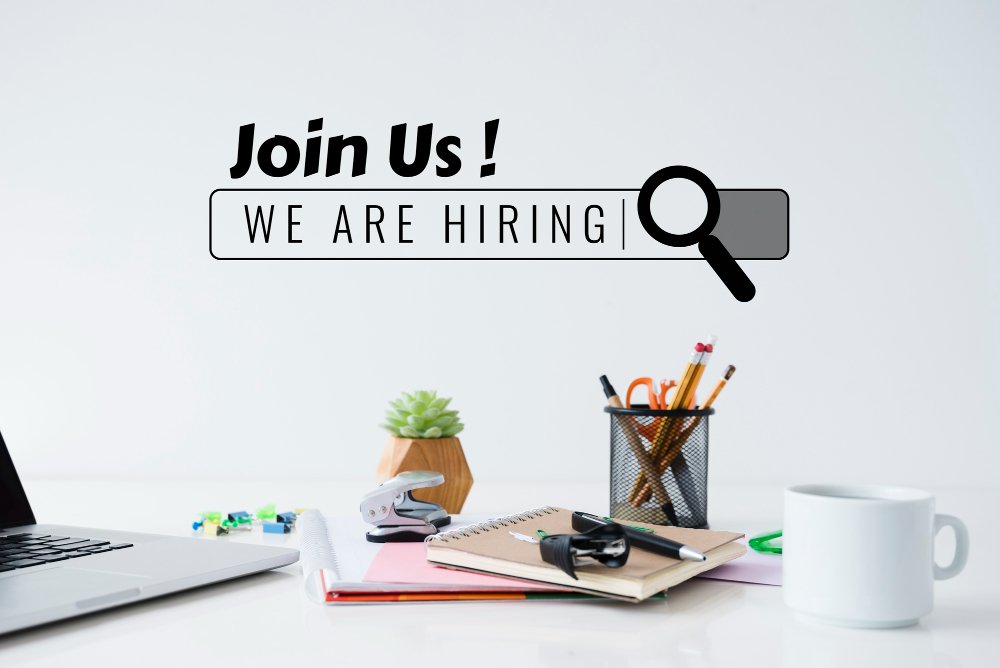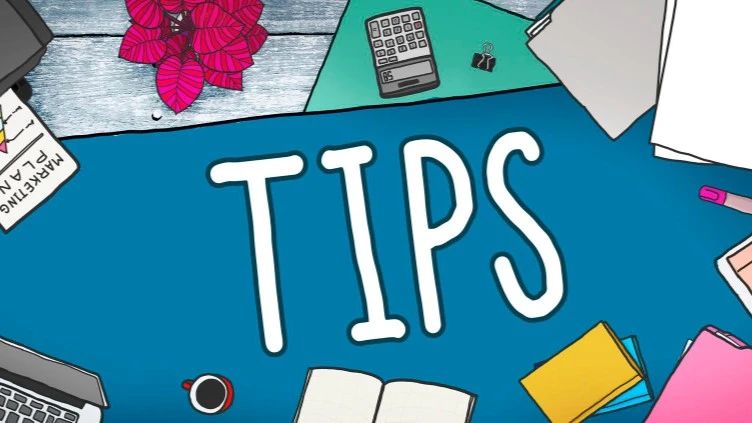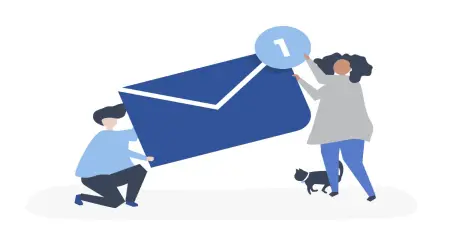

How to Respond to a Job Offer Email: Professional Tips and Email Templates
Introduction
Getting a job offer is super exciting, but how you reply is just as important. A thoughtful response shows you appreciate the offer and helps you come across as professional and respectful. The way you reply can set the tone for your future relationship with your new boss and leave a great first impression.
When you respond carefully, it shows you’re paying attention to details, respect the employer’s time, and want to make a well-informed decision. Whether you’re saying yes, negotiating, or turning down the offer, how you respond can really make you stand out as a great candidate, even before you start working.
In this article, we’ll walk you through how to respond to a job offer email. You’ll get professional tips and some helpful email templates to make sure your reply is clear, confident, and spot-on.
Why Your Reply Is So Important

When you get a job offer, how you respond really matters. A well-thought-out, professional reply shows respect for the company and sets the tone for how things will go once you start. Here’s why your reply is key:
- First Impressions Matter: Your response is one of the first things the company will see from you. A well-written email shows you take the offer seriously and respect the hiring process.
- Professionalism Sets the Stage: Replying quickly and politely shows that you have good communication skills. It also shows that you can handle business matters with maturity.
- Shows Appreciation: Saying thank you and acknowledging the job offer is a great way to show you’re grateful for the opportunity. Employers love to see appreciation in their future employees.
- Hints at Future Behavior: How you respond can give the company a glimpse of how you’ll act in the job. A positive, professional reply suggests you’ll bring that same enthusiasm and respect to the role.
Things to Think About Before Replying to a Job Offer
Before you hit “send” on that job offer email, take some time to think it through. Here’s what to consider before you respond:
- Salary and Benefits: Check if the salary fits your financial goals. Don’t forget to think about bonuses, health benefits, and retirement plans to see if they meet your needs.
- Job Duties: Look over the job description to make sure it matches your skills and what you want for your career. Is this the kind of work you expected? Does it fit with your long-term goals?
- Company Culture: Think about the company’s work environment. Would you be comfortable there? Does the company’s vision match your values?
- Location and Commute: Consider the job location and how easy it is to get there. Your commute can affect your work-life balance, so make sure it’s something you’re okay with.
Taking time to evaluate these things will help you make a better decision, ensuring the job is a good fit for you.
Key Steps in Responding to a Job Offer Professionally
Acknowledging the Offer
When you get a job offer email, it’s really important to show gratitude for the opportunity. Saying "thank you" in a genuine way helps create a positive atmosphere and shows respect for the employer’s decision. Here’s how you can do it:
- Show Appreciation: Start by thanking the employer for the job offer. Let them know you’re thankful for the chance and the time they spent considering you.
- Be Sincere: Skip the usual, impersonal phrases. Be genuine in expressing your thanks. Acknowledge how much effort the employer put into the interview process and the decision.
- Stay Positive and Polite: Even if you’re not sure about accepting the offer yet, keep your tone friendly and polite. Here’s a simple example:
- “Thank you so much for offering me the [Job Title] position. I’m really excited about the opportunity to join your team.”
This small but meaningful response sets a professional and respectful tone, building a great foundation for the next steps.
Confirming the Details
Once you've acknowledged the offer, it’s important to confirm the details to make sure everything is clear. This ensures both you and the employer are on the same page. Here’s what you should check:
- Start Date: Double-check the proposed start date to make sure it works with your schedule.
- Salary and Benefits: Reconfirm the salary, bonuses, benefits, and any other financial details. Clarity is key!
- Job Responsibilities: Make sure the responsibilities match what was discussed during the interview and what you expect from the role.
Here’s an example of how you might confirm the details:
“Could you please confirm that the start date is [Date], and the salary is [Salary Amount], as discussed? I’m really looking forward to starting and being part of the team.”
Asking Questions or Clarifying Terms
If anything about the offer isn’t clear or you have any questions, now is the time to ask. It’s important to do this politely and professionally. Here’s how to approach it:
- Be Specific: Focus on asking clear, specific questions related to the offer. If you need clarification on benefits, responsibilities, or anything else, ask for it.
- Stay Professional: Always ask questions in a respectful manner. This shows you’re careful in your decision-making and professional in your communication.
Example question:
“Could you please clarify the details of the benefits package, particularly the healthcare options available?”
Asking thoughtful questions helps ensure that you fully understand the offer and shows that you’re making an informed decision.
Making Your Decision (Acceptance, Negotiation, or Decline)
After you’ve acknowledged the offer and confirmed all the details, it’s time to make your decision. Whether you’re accepting, negotiating, or declining, it’s crucial to respond clearly:
- If Accepting: Share your excitement and enthusiasm for the role. A positive acceptance sets a great tone for the relationship.
- If Negotiating: If you need to discuss certain aspects of the offer, ask politely for changes or clarifications. Be specific about what you’d like to adjust, like salary or work schedule.
- If Declining: If you decide not to take the offer, do it respectfully and professionally. Keep the door open for future possibilities.
Example of accepting the offer:
“I’m excited to accept the offer for the position of [Job Title]. I’m looking forward to starting on [Start Date] and joining the team.”
Example of declining the offer:
“Thank you so much for offering me the position of [Job Title]. After careful thought, I’ve decided to go in a different direction. I truly appreciate your time and consideration.”
A clear, respectful response—no matter what decision you make—will leave a positive impression.
Professional Tips for Responding to a Job Offer Email

Respond Quickly and Within the Given Timeframe
When you get a job offer, it’s important to reply as soon as possible. Most employers will give you a deadline, and meeting it shows that you are reliable and respectful of their time. Here’s why replying quickly matters:
- Respect for the Employer: A prompt response shows that you value the offer and the time the company took to consider you. It reflects your professionalism.
- Shows Decision-Making Ability: Quickly replying shows that you can make decisions and move things forward efficiently.
- Helps with Planning: Your quick reply helps the employer plan things like your start date and the onboarding process.
Tip: If you need more time to decide, it’s okay to ask for an extension, but do it professionally. Here’s an example:
“Thank you for the offer! I’m really excited about the opportunity. Would it be possible to have a few more days to finalize my decision?”
Keep a Positive and Grateful Tone
No matter what your decision is, always keep a positive and thankful tone in your reply. Here’s why this matters:
- Gratitude Goes a Long Way: Even if you’re turning down the offer, showing gratitude helps leave the door open for future opportunities.
- Professional Image: A polite and professional reply leaves a good impression, especially if you want to stay on good terms for potential future roles.
- Confidence in Your Decision: Always be confident about your choice, even if you’re declining. A professional response makes sure the employer respects your decision.
Tip: If you’re turning down the offer, thank them for the opportunity and stay polite. Example:
“Thank you so much for offering me the position and for taking the time to meet with me. After some careful thought, I've decided to go in a different direction with another opportunity. I truly appreciate your understanding.”
Use Clear and Concise Language
Clarity is key when replying to a job offer. Employers want straightforward communication, so avoid using too much jargon or overly complex sentences. Here’s how to keep it clear and simple:
- Be Direct: Get to the point without extra details. Focus on the important things: gratitude, your decision, and any necessary clarifications.
- Use Short Paragraphs: Break your reply into short paragraphs to make it easier to read.
- Keep It Professional: Stay formal but friendly, and avoid casual language or emojis.
Example of a clear response:
“Thank you for offering me the position. I’m excited to accept and look forward to starting on [Start Date]. Could you please confirm if the salary and benefits are as discussed?”
Tip: Before you send your reply, proofread it to make sure it’s clear and easy to read without any extra fluff.
Proofread Your Response
Before you hit send, always take a moment to proofread your job offer response email. Here’s why this is important:
- Avoid Mistakes: Typos or grammar errors can make your email seem rushed or unprofessional. Double-check for any mistakes before sending.
- Check for Clarity: Make sure your message is clear and there’s no confusion about your decision or the details you’re confirming.
- Maintain Professionalism: A well-written, mistake-free email reinforces your professionalism and attention to detail.
Tip: Read your email out loud or use a tool like Grammarly to catch any mistakes. This small step can make a big difference in how the employer sees you.
Email Templates for Different Job Offer Scenarios
Template 1: How to Accept a Job Offer
Accepting a job offer in a professional way helps you start your new role on the right foot. Here’s a simple and effective template for formally accepting the offer:
Subject: Acceptance of Job Offer – [Job Title]
Dear [Hiring Manager's Name],
I hope you're doing well. I’m excited to formally accept your offer for the [Job Title] position at [Company Name]. Thank you so much for this opportunity and for having confidence in me.
I confirm that I’m available to start on [Start Date], as we discussed, and I’m looking forward to contributing to the team. Please let me know if you need any additional information from me before then.
Thanks again for the opportunity. I’m looking forward to joining [Company Name] and working with such a talented team!
Best regards,
[Your Name]
This template shows enthusiasm, confirms key details, and maintains a professional tone to ensure a smooth transition into your new role.
Template 2: How to Ask for Negotiation on Salary or Benefits
If you’d like to negotiate aspects of the job offer like salary or benefits, it’s important to approach the conversation professionally and respectfully. Here’s a template for asking about the terms:
Subject: Job Offer Discussion – [Job Title]
Dear [Hiring Manager's Name],
Thank you so much for offering me the [Job Title] position at [Company Name]. I’m excited about the opportunity to join your team!
Before I formally accept the offer, I’d like to discuss a few details, particularly regarding [salary/benefits/other terms]. I’m confident we can work out an agreement that benefits us both.
Would it be possible to schedule a call to discuss this further at your convenience?
Thanks again for your time and consideration. I look forward to hearing from you.
Best regards,
[Your Name]
This approach is polite and professional, and it ensures that you maintain a positive relationship while discussing the offer terms.
Template 3: How to Decline a Job Offer
If you decide not to accept the job offer, it’s important to decline gracefully. Here’s a professional template for politely turning down the offer while keeping the door open for future opportunities:
Subject: Job Offer – [Job Title]
Dear [Hiring Manager's Name],
Thank you so much for offering me the [Job Title] position at [Company Name]. After careful consideration, I’ve decided to move forward with another opportunity that aligns better with my long-term career goals.
I truly appreciate all the time and effort you and your team put into the interview process. I’m grateful for the chance to learn more about your company and team. I hope we can stay in touch, and I would be open to considering future opportunities at [Company Name].
Thanks again for your understanding, and I wish you and your team continued success.
Best regards,
[Your Name]
This template helps you decline the offer respectfully, express gratitude, and leave the door open for potential future opportunities.
How to Follow Up After Your Response
When and How to Follow Up After Accepting the Offer
After you’ve accepted the job offer, it’s important to follow up and confirm the next steps before your start date. This ensures both you and the employer are on the same page, which helps make the transition smooth. Here's when and how to follow up:
When to Follow Up: If you haven’t received any communication about next steps within a week of your acceptance, it’s a good time to check in. This can clarify details about your first day, orientation, or paperwork.
How to Follow Up: Keep your message short, polite, and clear. Here’s an example of how to follow up professionally:
Subject: Follow-Up on Next Steps for [Job Title]
Dear [Hiring Manager's Name],
I hope you're doing well. I wanted to follow up on the next steps as I prepare for my start date of [Start Date] for the [Job Title] position. Please let me know if there’s anything I need to do before my first day or if you need any further information from me.
Looking forward to joining the team!
Best regards,
[Your Name]
This follow-up message shows you are proactive and organized while keeping things professional.
How to Follow Up if You Haven’t Received a Response
If you've responded to a job offer but haven’t heard back within the expected timeframe, it’s important to follow up in a polite and professional way. Here’s how to approach it:
Timing: If you were given a deadline and haven’t received a response within a few days of that date, it’s time to follow up. If no deadline was given, wait at least a week before reaching out.
How to Follow Up: Be polite and understanding. Avoid sounding impatient. Here’s an example:
Subject: Follow-Up on Job Offer Response
Dear [Hiring Manager's Name],
I hope you're doing well. I just wanted to follow up regarding my response to the [Job Title] offer. I understand that things can get busy, but I wanted to confirm if there are any updates or further information you might need from me.
Looking forward to hearing from you!
Best regards,
[Your Name]
This follow-up remains professional while gently reminding the employer that you’re waiting for their response. It shows you're still interested and ready to move forward.
Conclusion
Responding to a job offer email is a crucial step in your career journey. A well-crafted response reflects your professionalism, respect for the company, and careful decision-making. In this article, we’ve discussed the importance of a timely, clear, and respectful response. Whether you’re accepting, negotiating, or declining the offer, maintaining a positive tone sets the stage for a successful start.
Remember, your communication matters just as much as your decision. A clear, concise, and thoughtful response leaves a great first impression, and the templates and tips in this guide can help you make the best choice. Take your time, ensure your response is well-considered, and don’t hesitate to use follow-up emails to confirm or clarify important details.
Frequently Asked Questions
How do I professionally accept a job offer via email?
Acknowledge the offer, state clearly that you accept, confirm the key details (job title, start date, pay), and ask about the next step, short and to the point. Mini template:
Subject: Job Offer Acceptance [Your Name]
“Hi [Name], thank you for the offer. I’m happy to accept the [Title] role starting [Date]. As discussed, the salary is [Amount]. Please let me know the next steps or any paperwork you need from me. Best, [Name]”
How long do I have to respond?
Reply within 24 hours to acknowledge the offer, even if you’re still deciding. If you need time, ask for the employer’s deadline; a few days is common, and roughly a week from the verbal offer is typical.
How do I ask for more time to decide?
Express enthusiasm, explain that you’re reviewing the details carefully, and request a specific date to confirm. Mini template:
“Hi [Name], I’m excited about the offer and want to make a well-informed decision. Could I confirm by [Date]? Please let me know if that works.”
What subject line should I use when replying?
Keep it clear and professional, signaling your intent and including your name. Examples: “Job Offer Acceptance [Your Name],” “Job Offer [Your Name],” or “Offer for [Role] [Your Name].”
How do I negotiate salary or terms via email?
Use email to set up a conversation rather than negotiating every detail in writing. Reaffirm your interest and fit, list the topics you’d like to discuss (base salary, bonus, benefits, start date), and propose a call. Mini template:
“Hi [Name], thank you for the offer. I’m very excited about the role. I have a few questions about [salary/benefits/start date]. Could we speak this week to discuss?”
How do I decline politely without burning bridges?
Respond promptly, thank them for the opportunity, be clear and brief about your decision, and keep the door open. Mini template:
“Hi [Name], thank you for the [Title] offer and for your time. After careful consideration, I’m going to decline as it isn’t the right fit right now. I appreciate the opportunity and hope we can stay in touch. Best, [Name]”
Related Articles :-
- HVAC Email Marketing: Getting More Leads and Keeping Customers Happy
- Email Marketing for Content Distribution: How to Maximize Reach and Engagement
- Email Marketing for Insurance: How to Build Trust and Help Clients Make Smart Choices
- How to Check Competitors' Email Marketing: Tools and Techniques for Competitive Analysis




